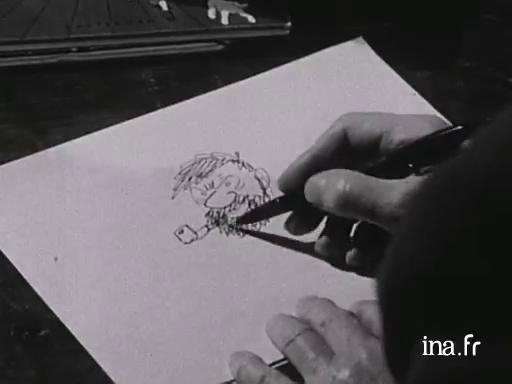Hergé on Captain Haddock

Information
Interview with Hergé about the creation of Captain Haddock and his famous insults. This character was born in the album The adventures of Tintin: The Crab with the Golden Claws.
Context
Born in 1907, Georges Remi, known as Hergé, was a Belgian author of comic books.
His fame came with The Adventures of Tintin and Milou, whose first episode appeared in 1929 in the Le Petit Vingtième newspaper. For fifty years, the reporter and his loyal dog travel the entire world. Their adventures are translated into over fifty languages and sold more than 200 million copies worldwide. Hergé also wrote Quick & Flupke (1930), about two rascals who constantly do silly things and Jo, Zette and Jocko (1935), the adventures of a brother and sister accompanied by their monkey.
Hergé's career is often suspected of having ties with the Nazi regime: he publishes anti-Semitic drawings in the papers, admires Mussolini and certain details in Tintin are a bit troubling. His ambiguous behaviour during the Occupation made him uneasy once Belgium was liberated. Forbidden from publishing, Hergé dedicated himself to the revision of his former books. In 1946, Raymond Leblanc, a former resistant, proposes to create the Tintin journal, with the participation of many illustrators and in which the eponymous hero's adventures continue. In 1980, Hergé is afflicted with leukaemia; he dies in 1983 in Belgium.




